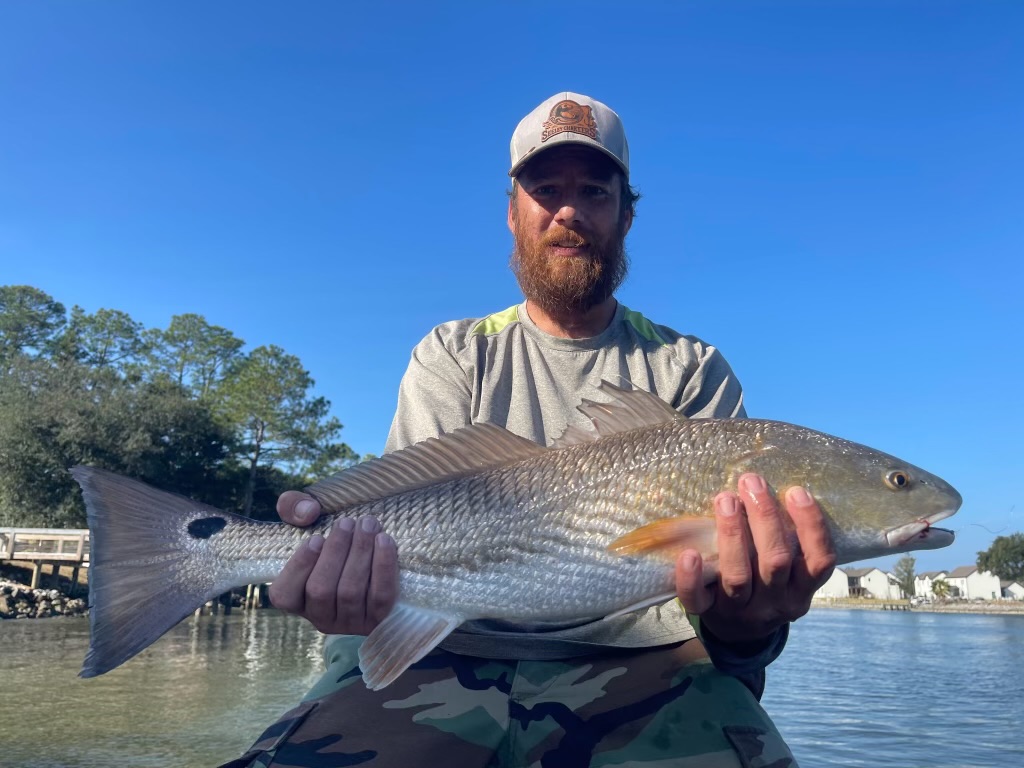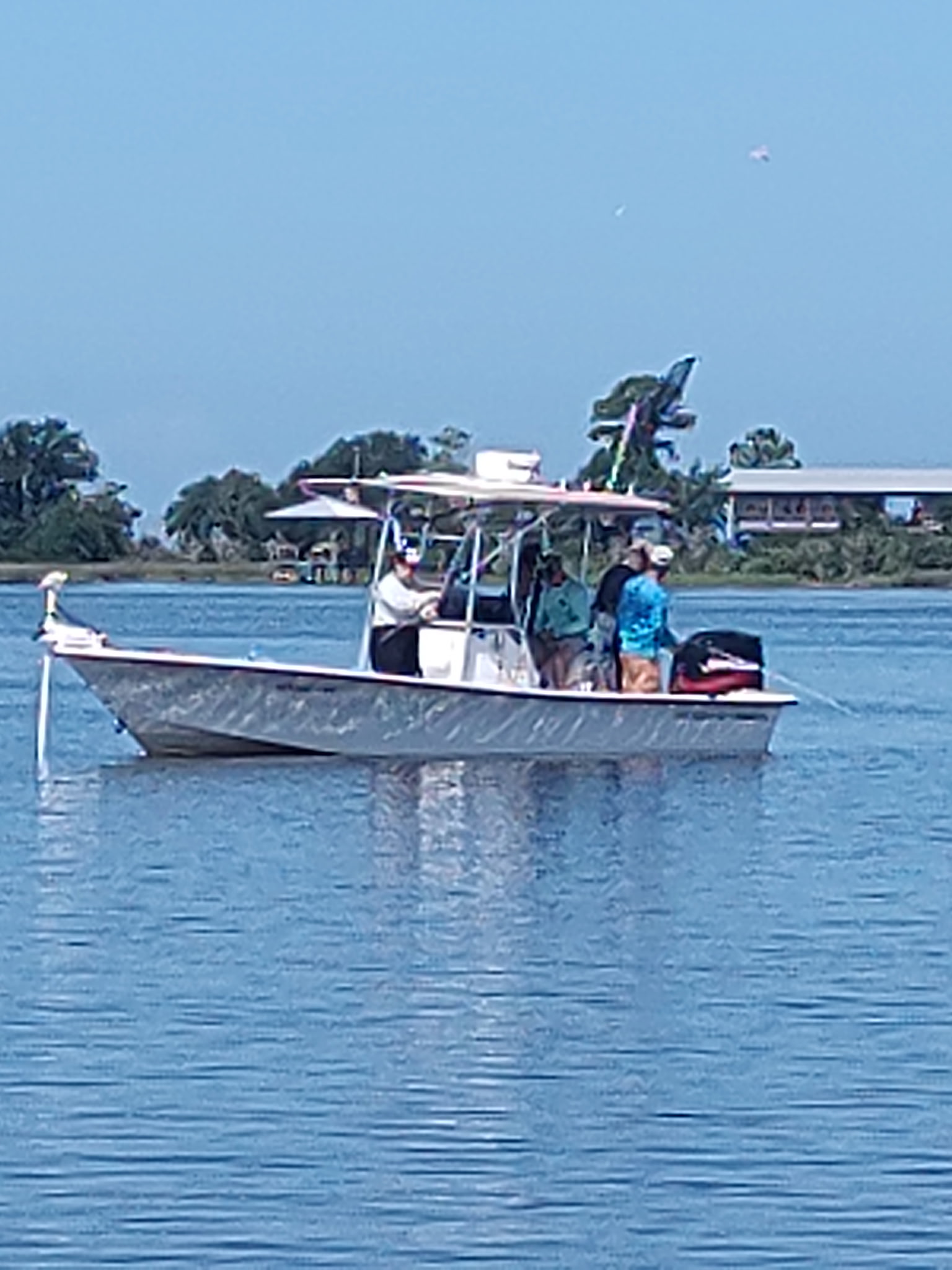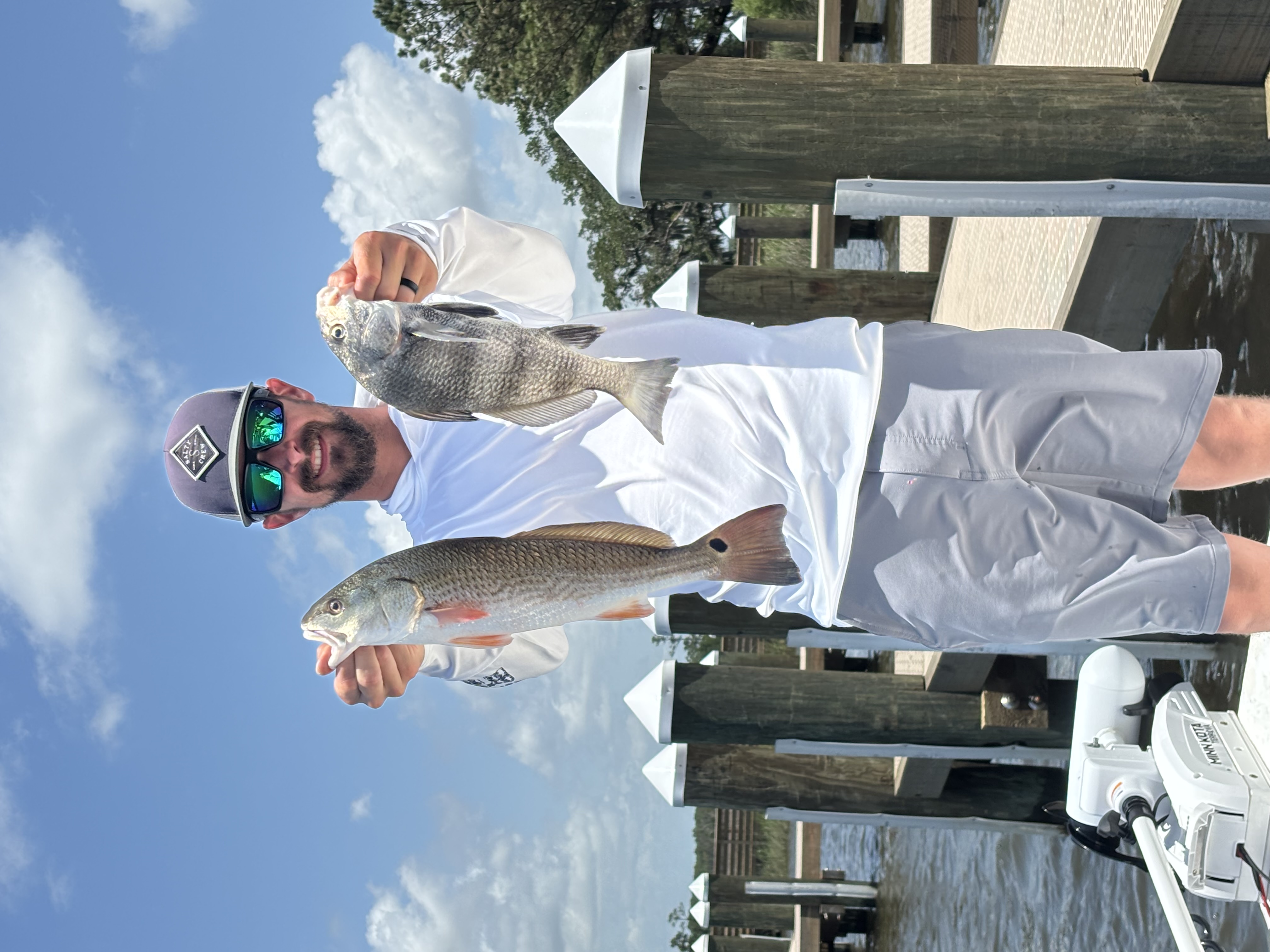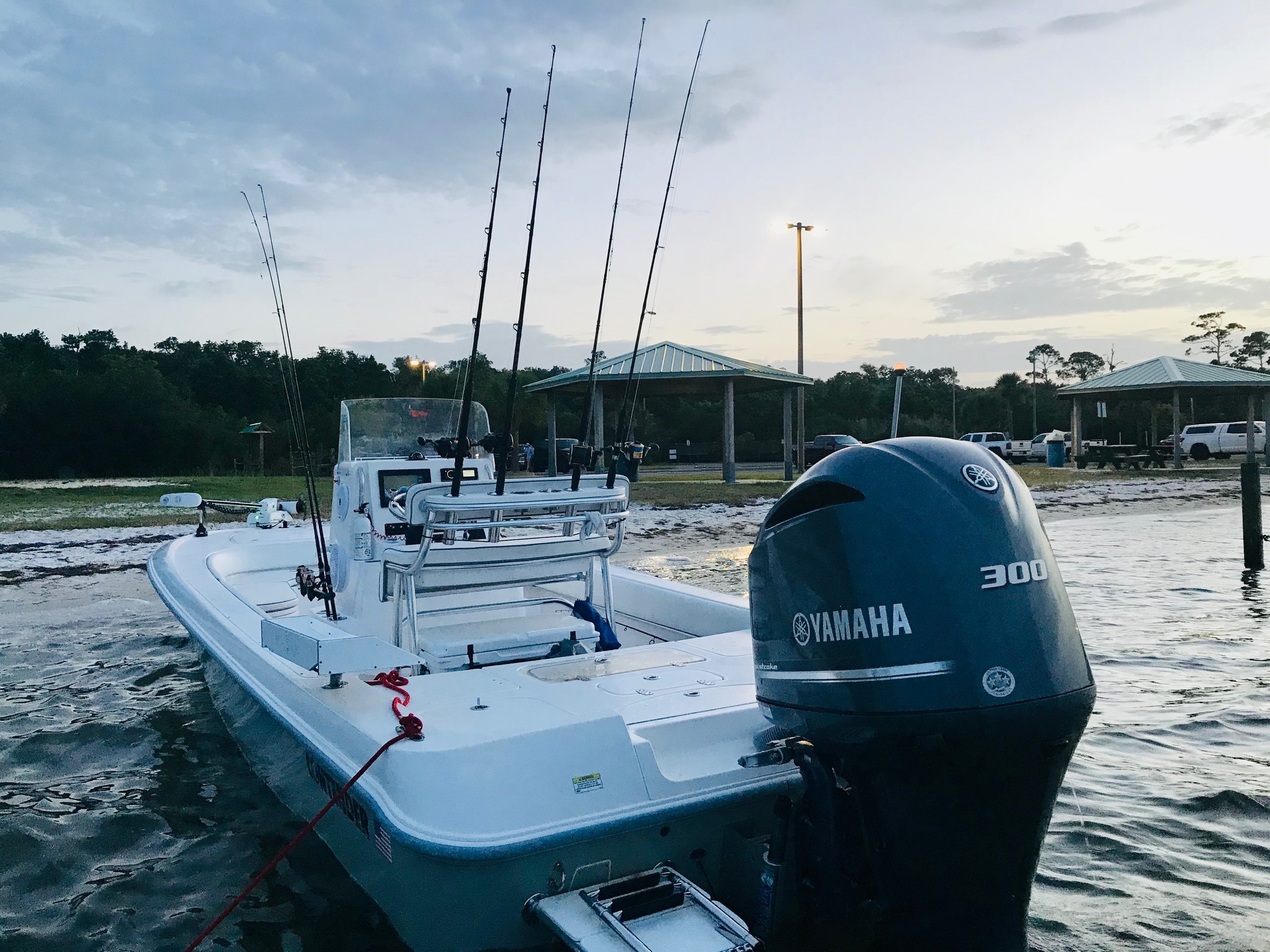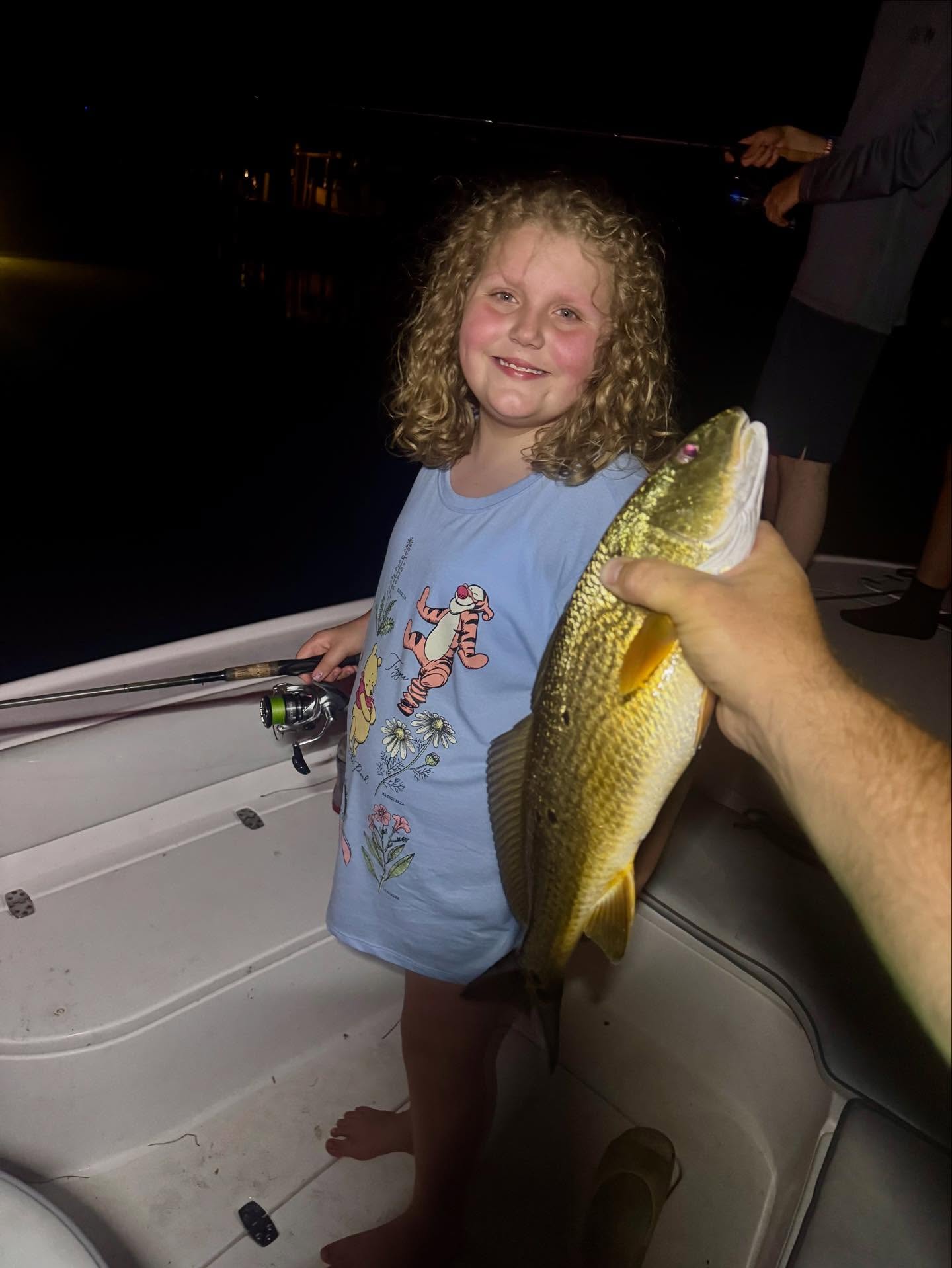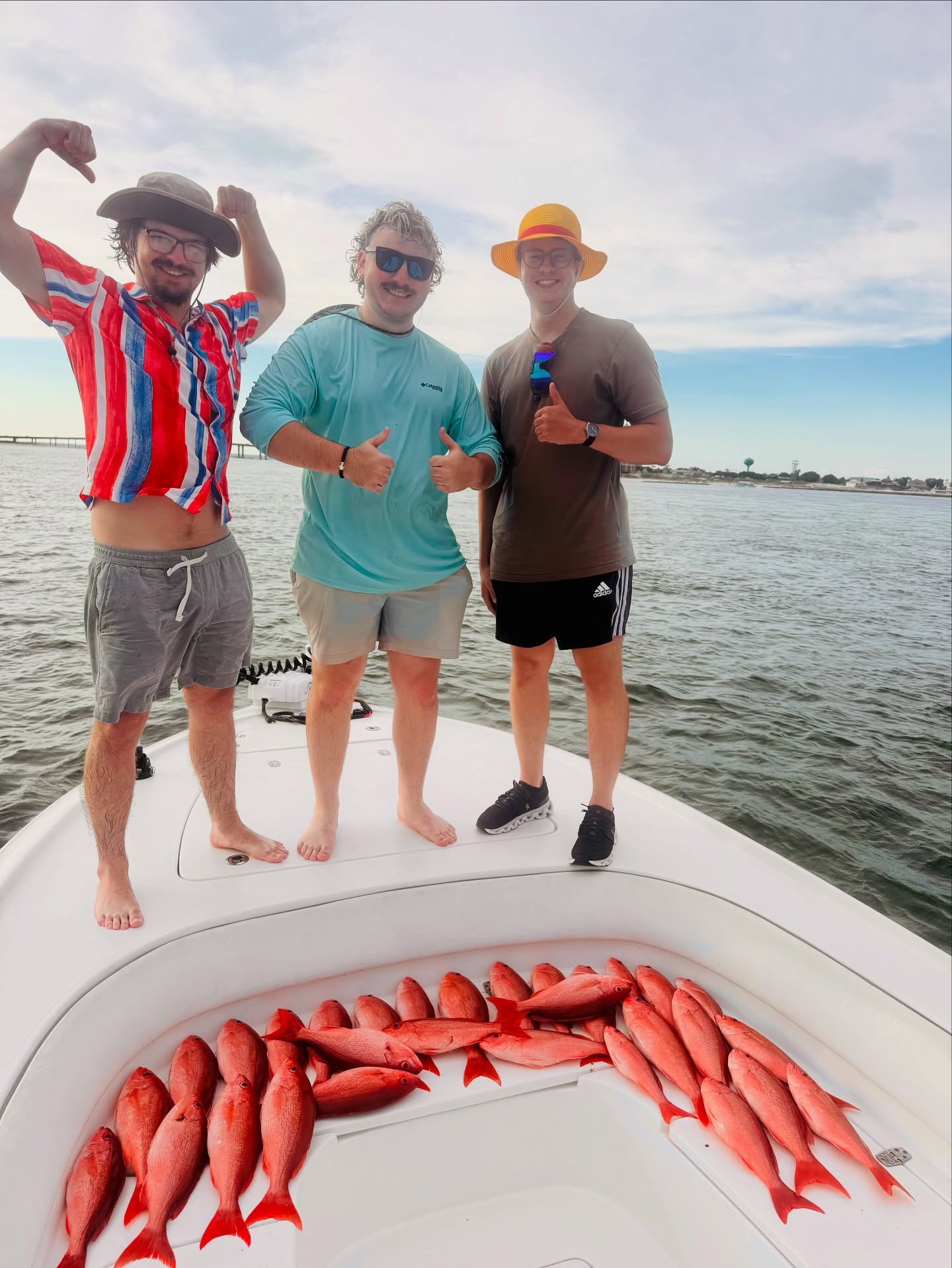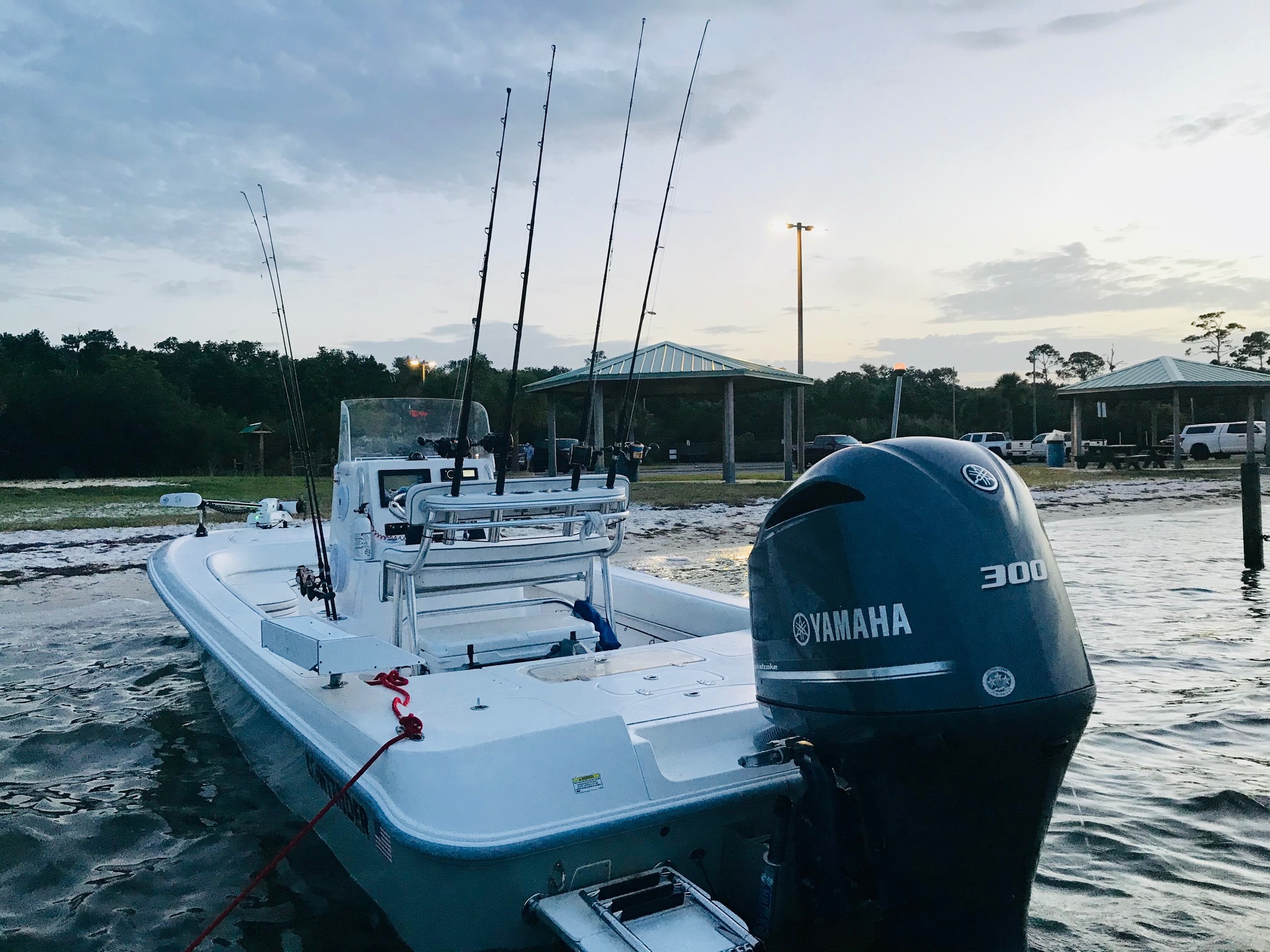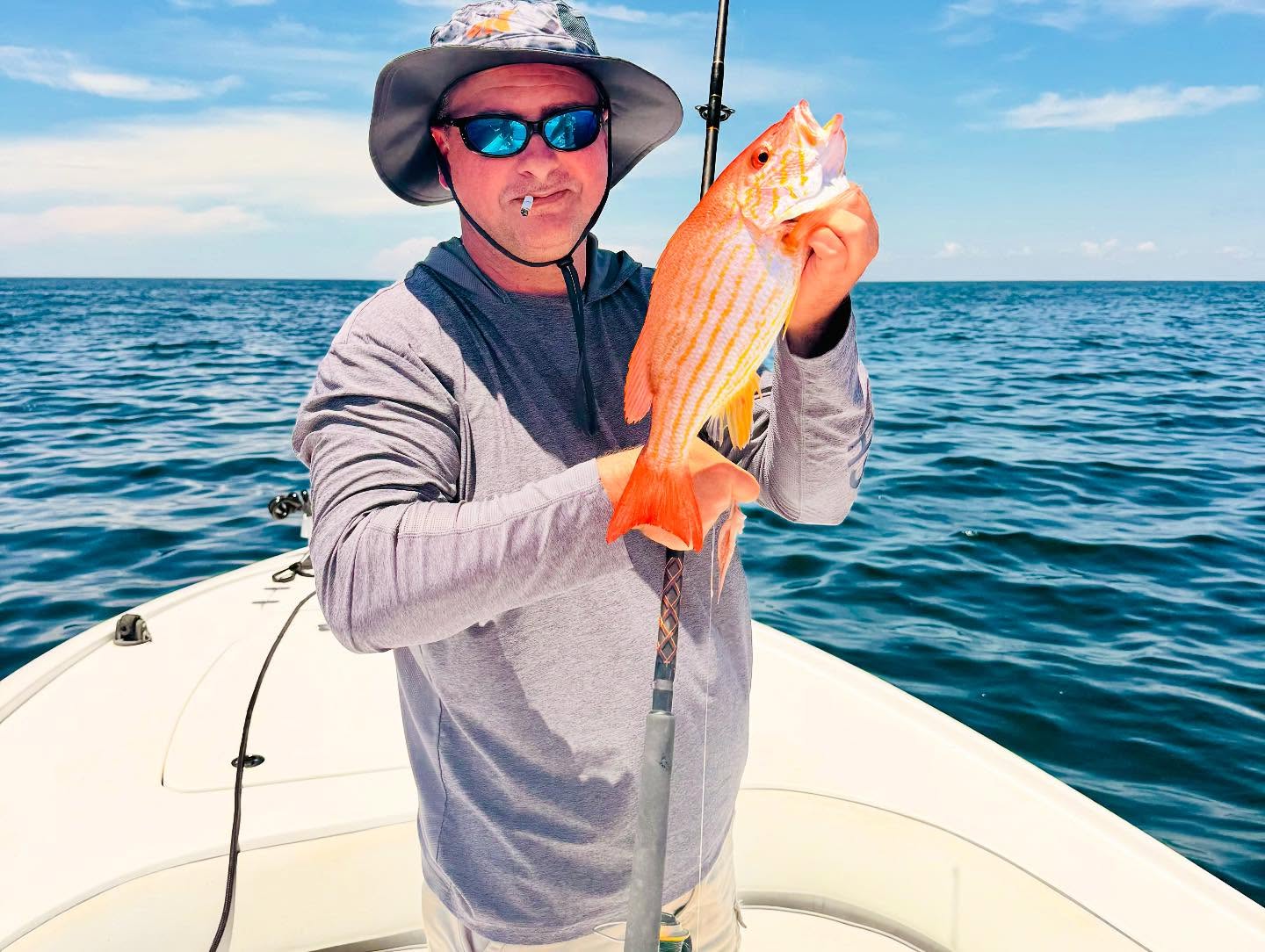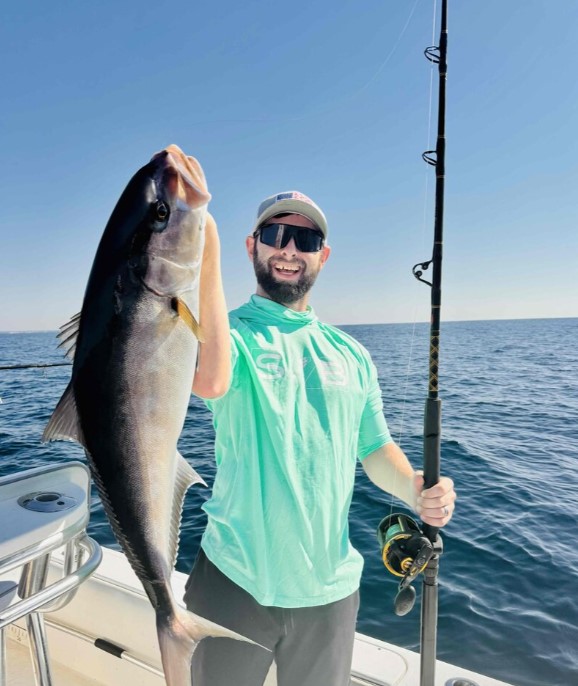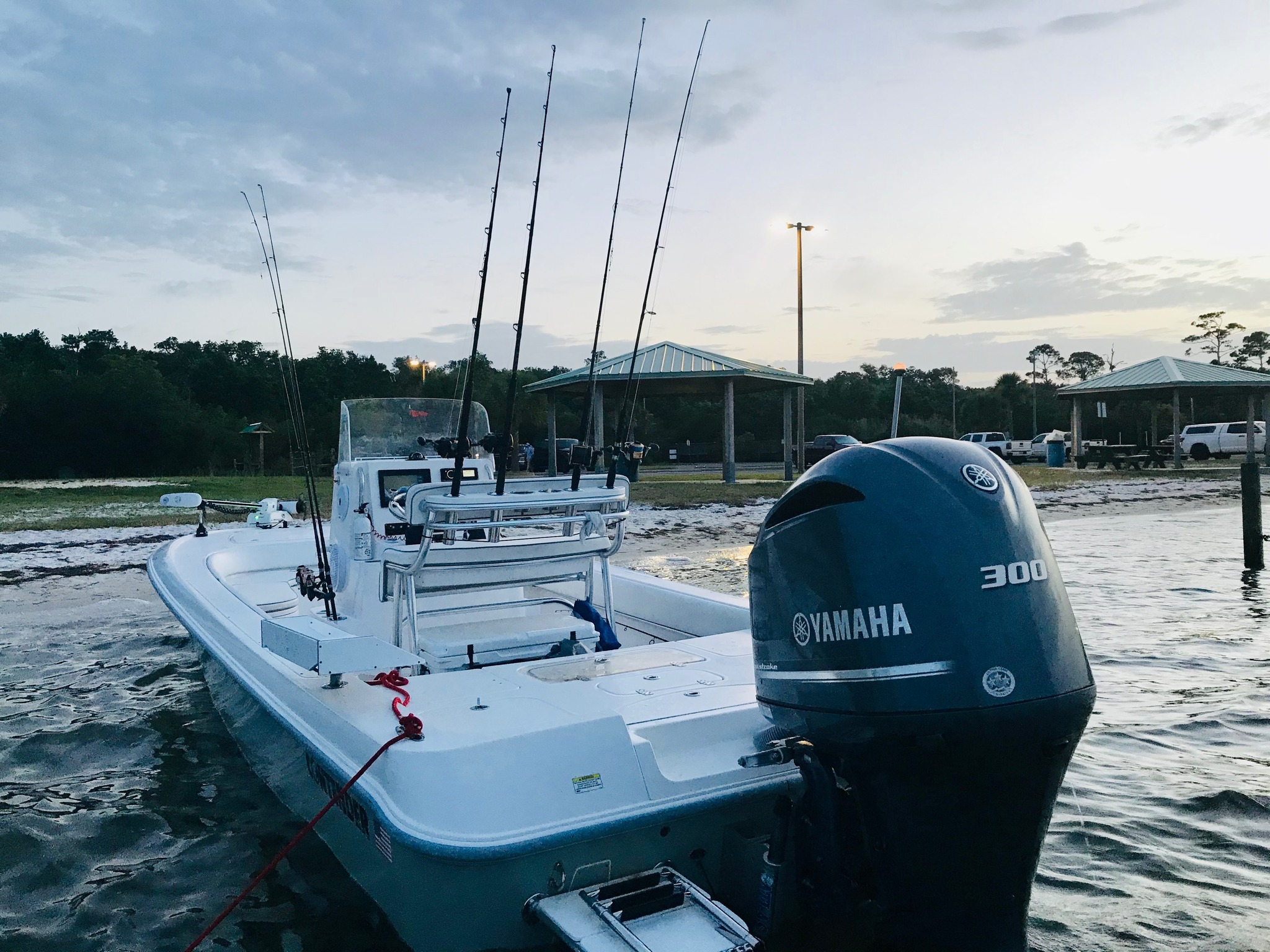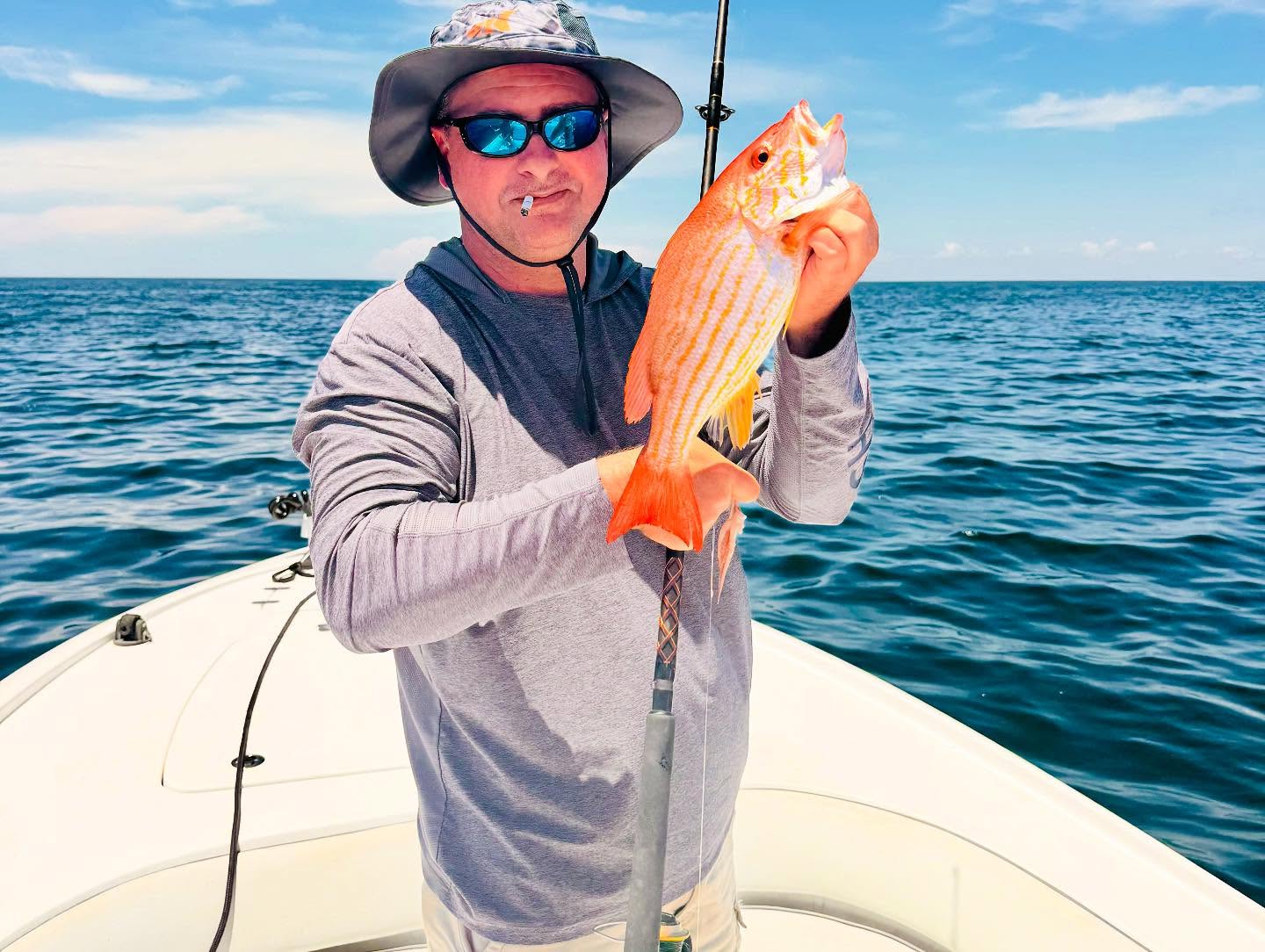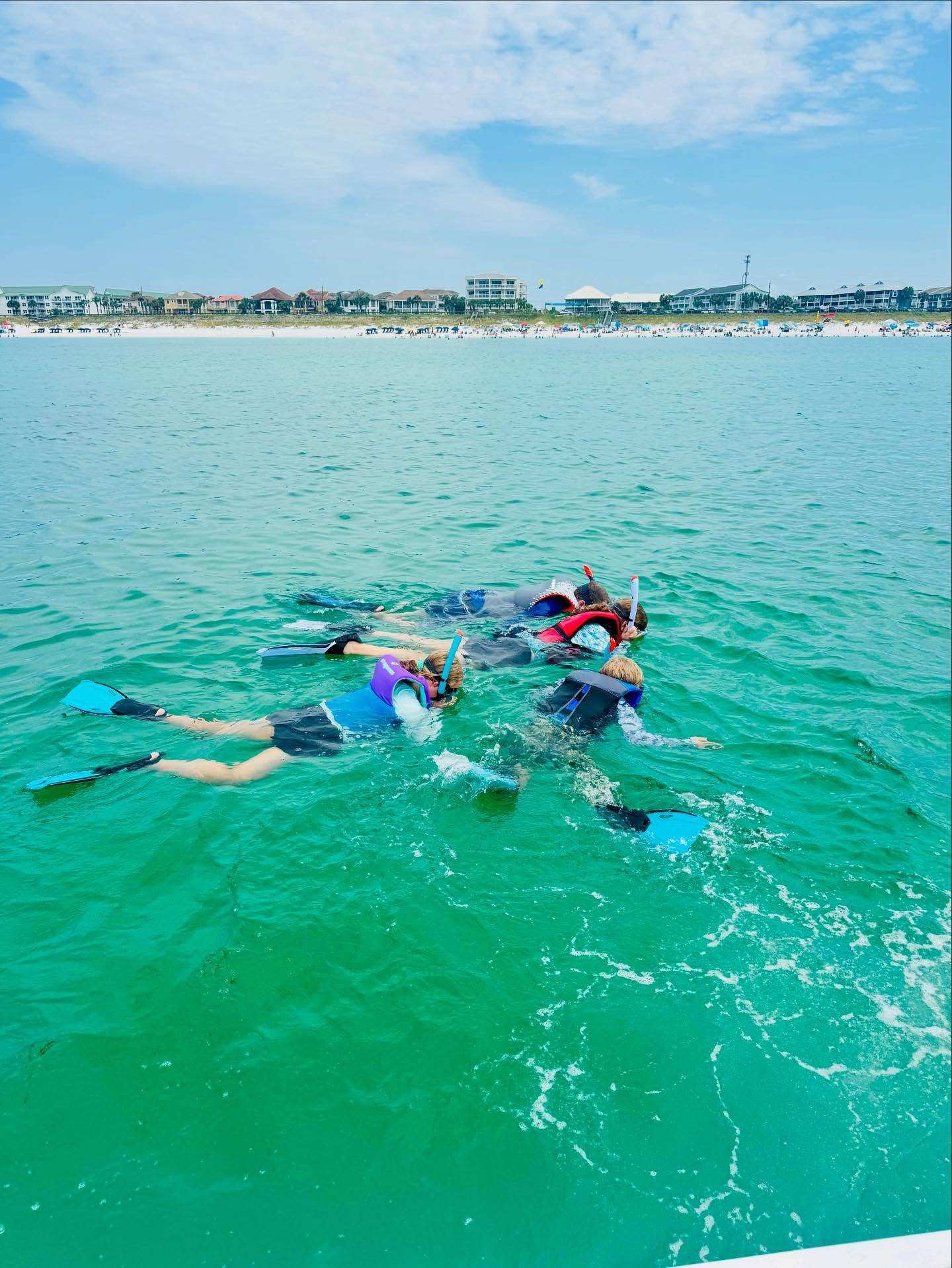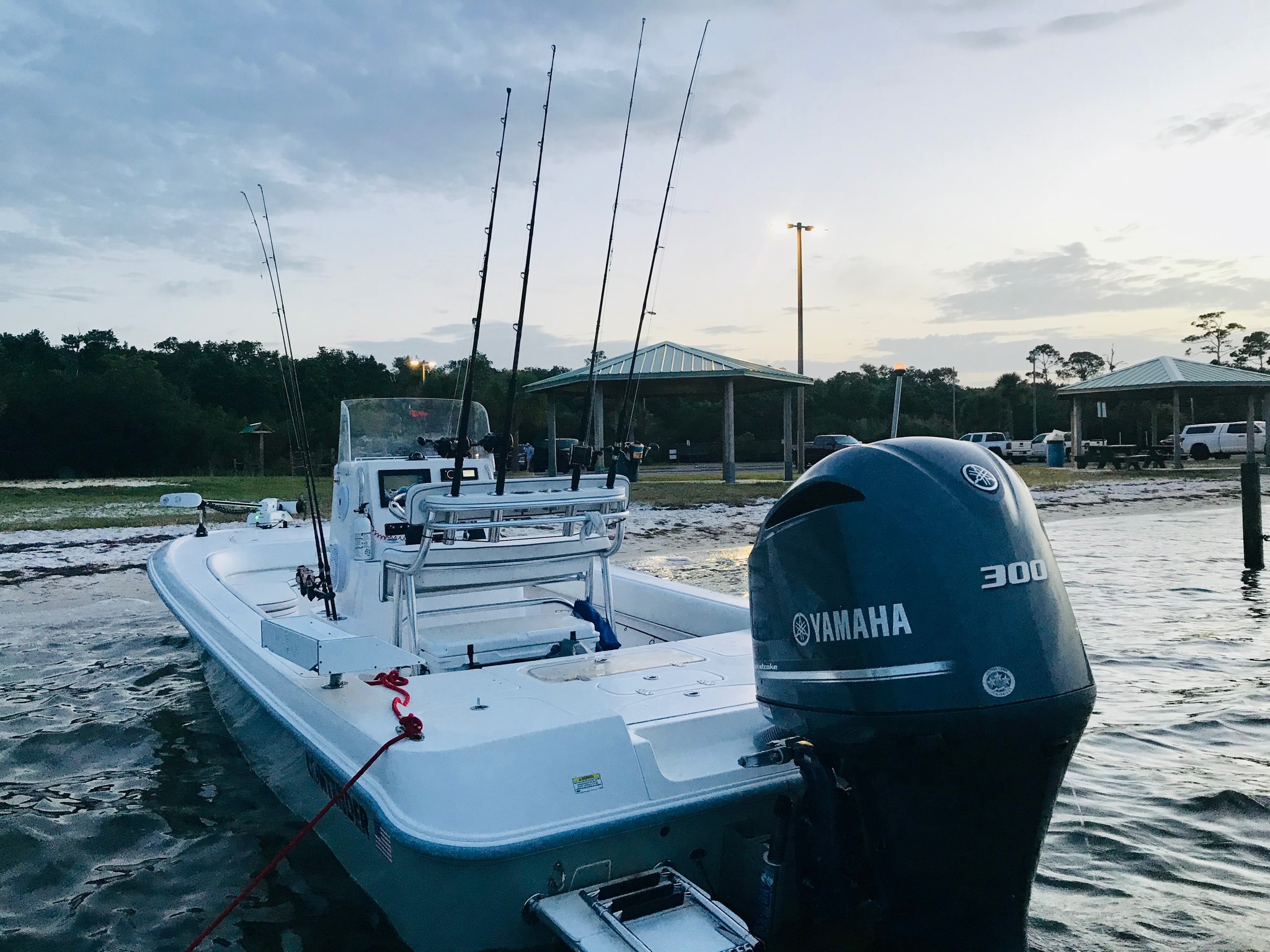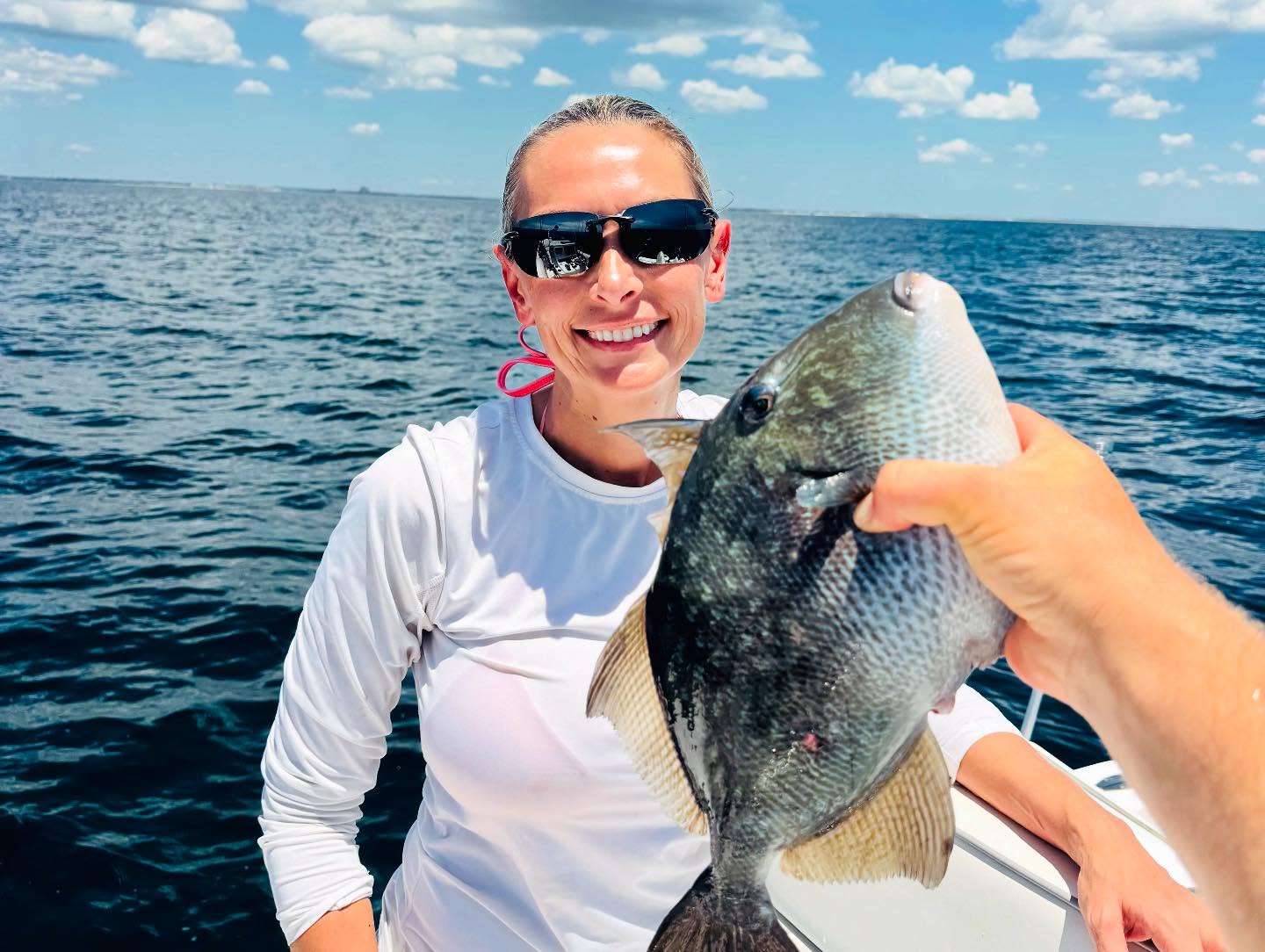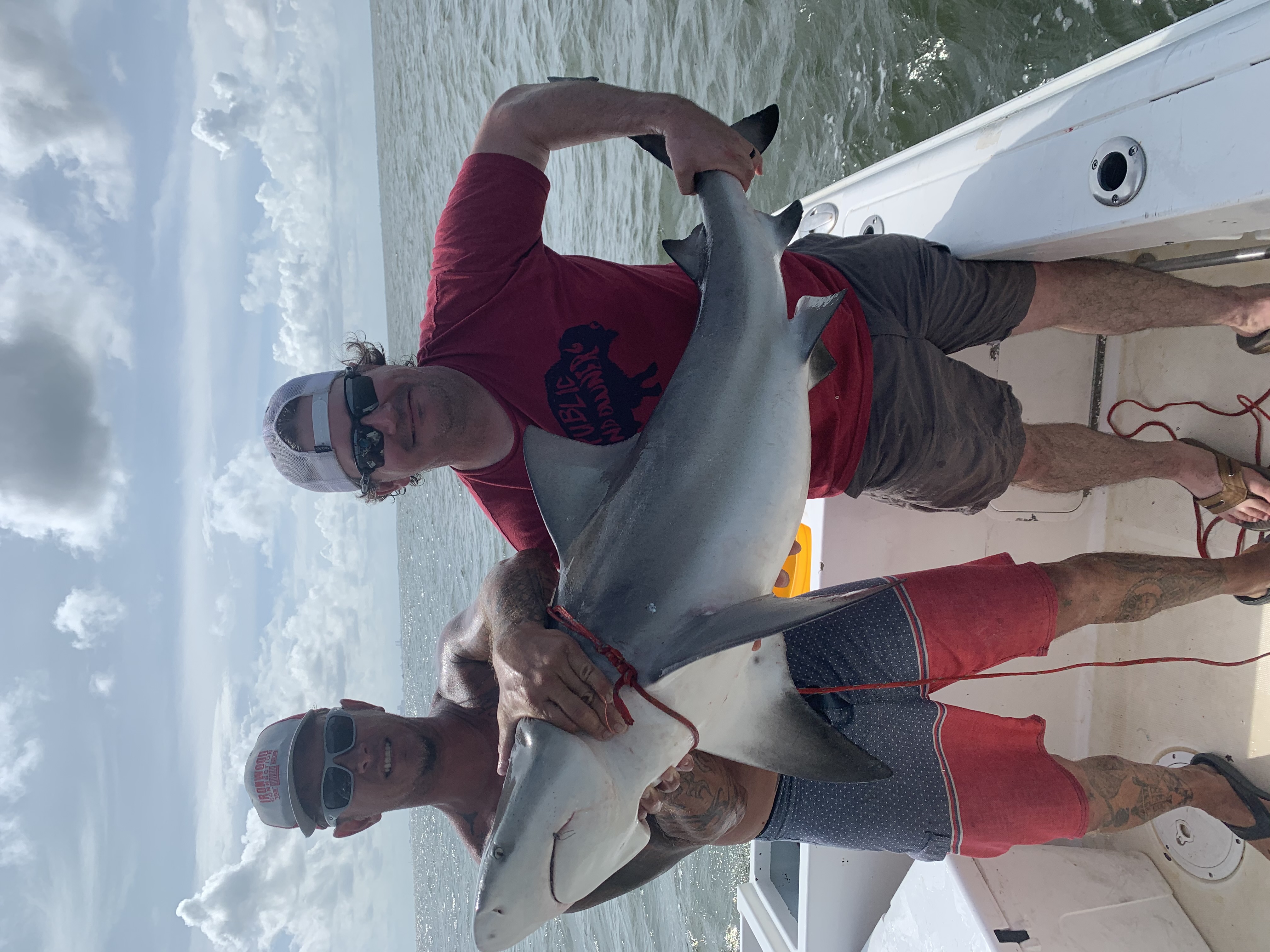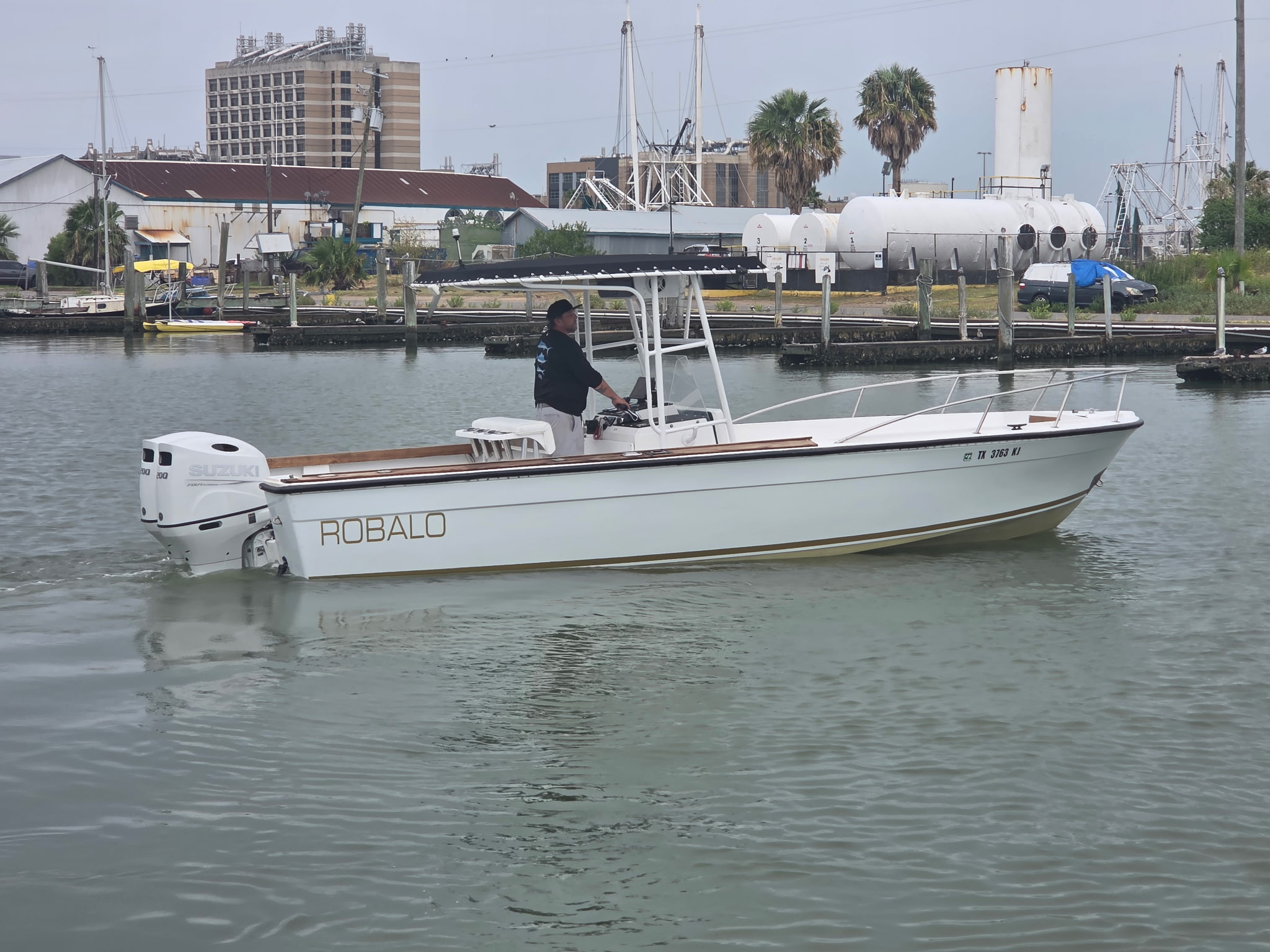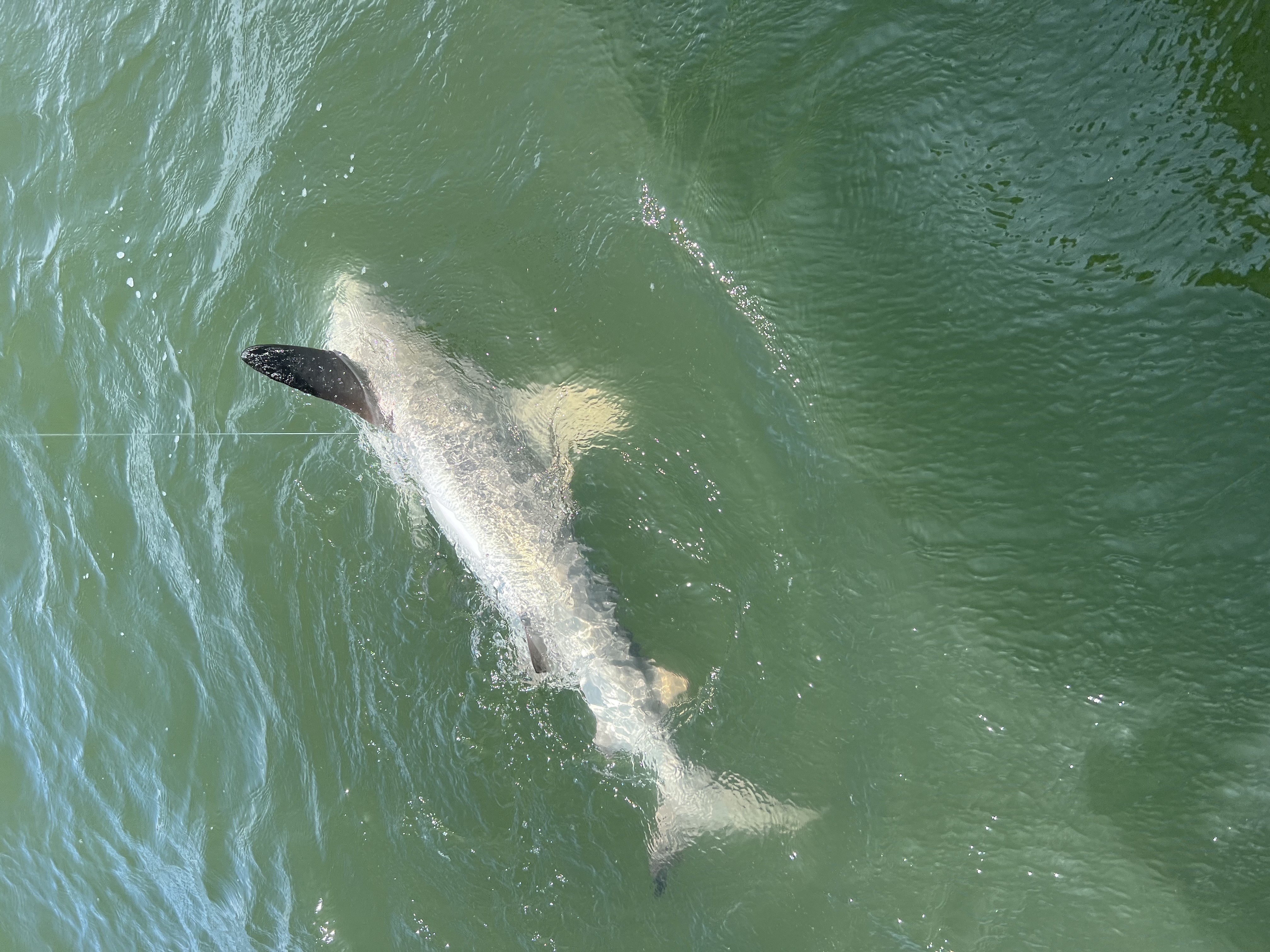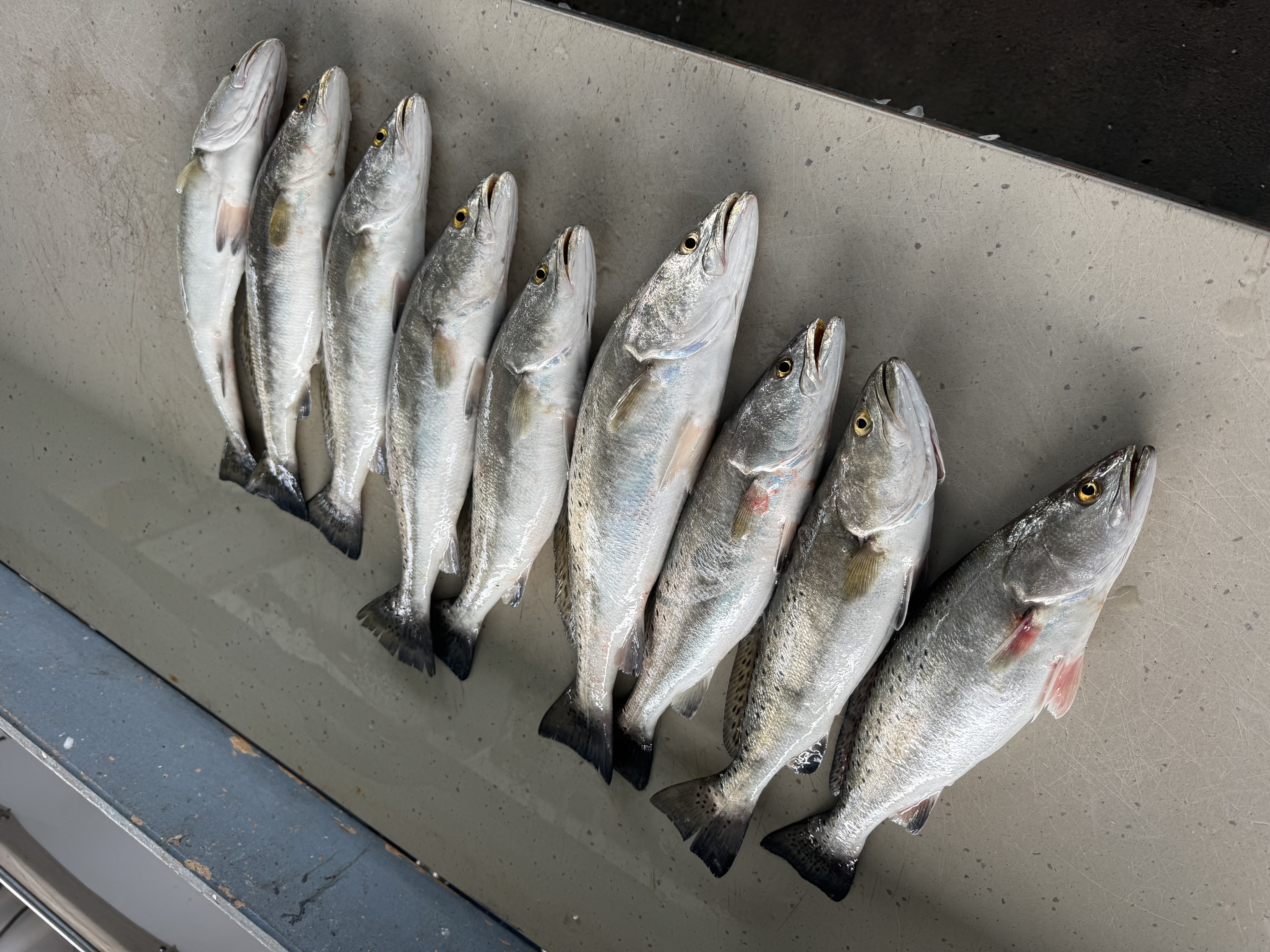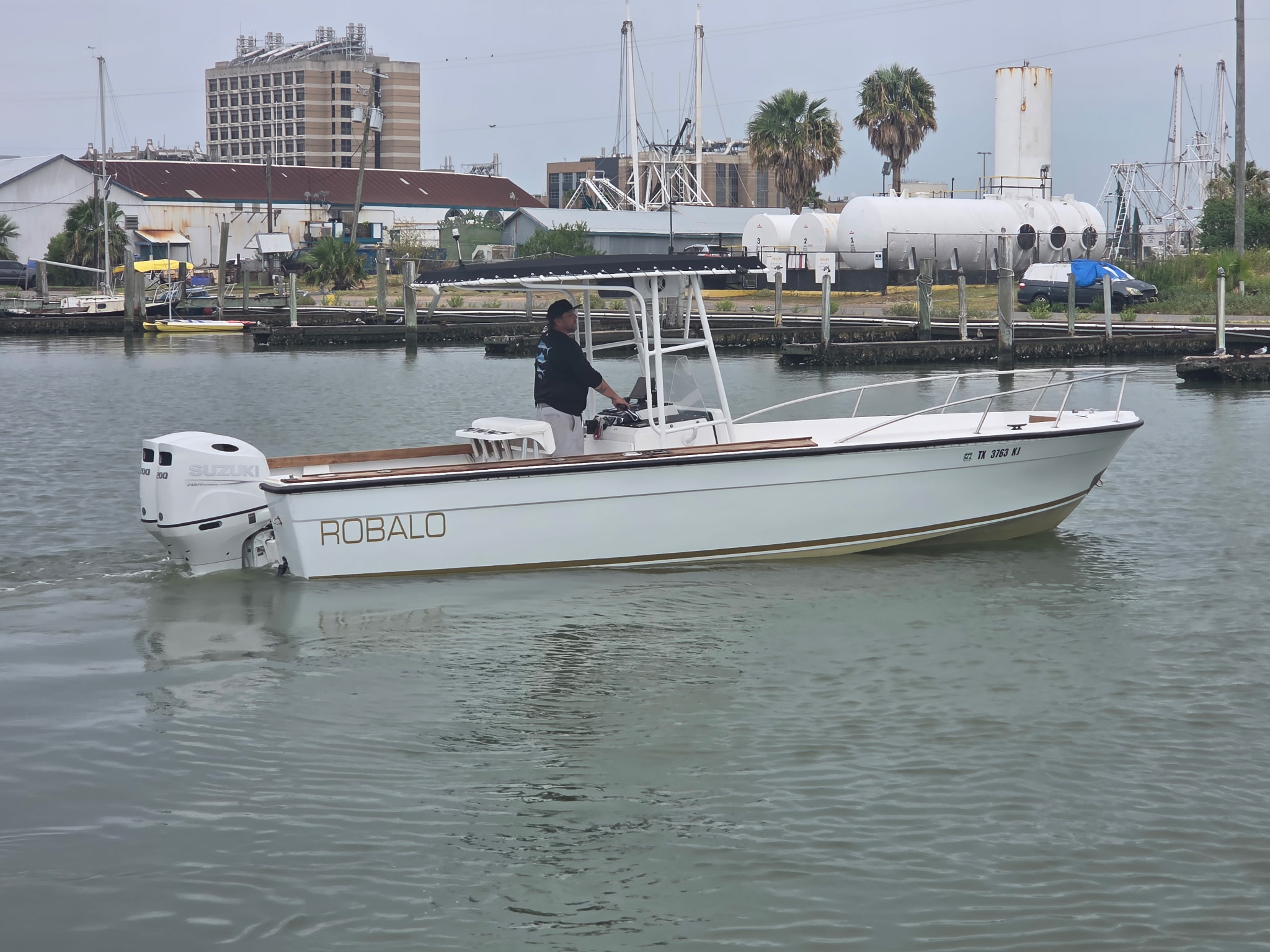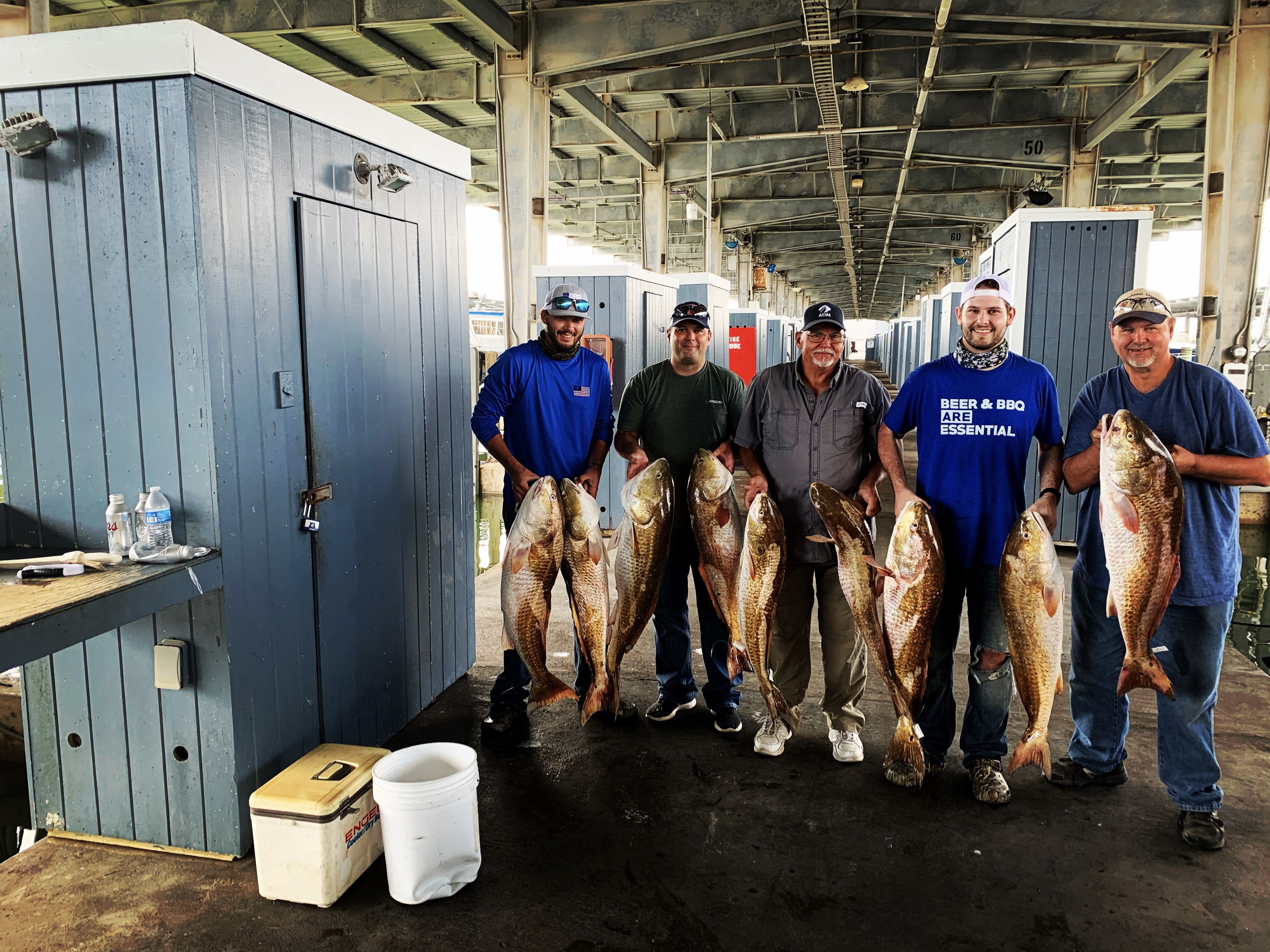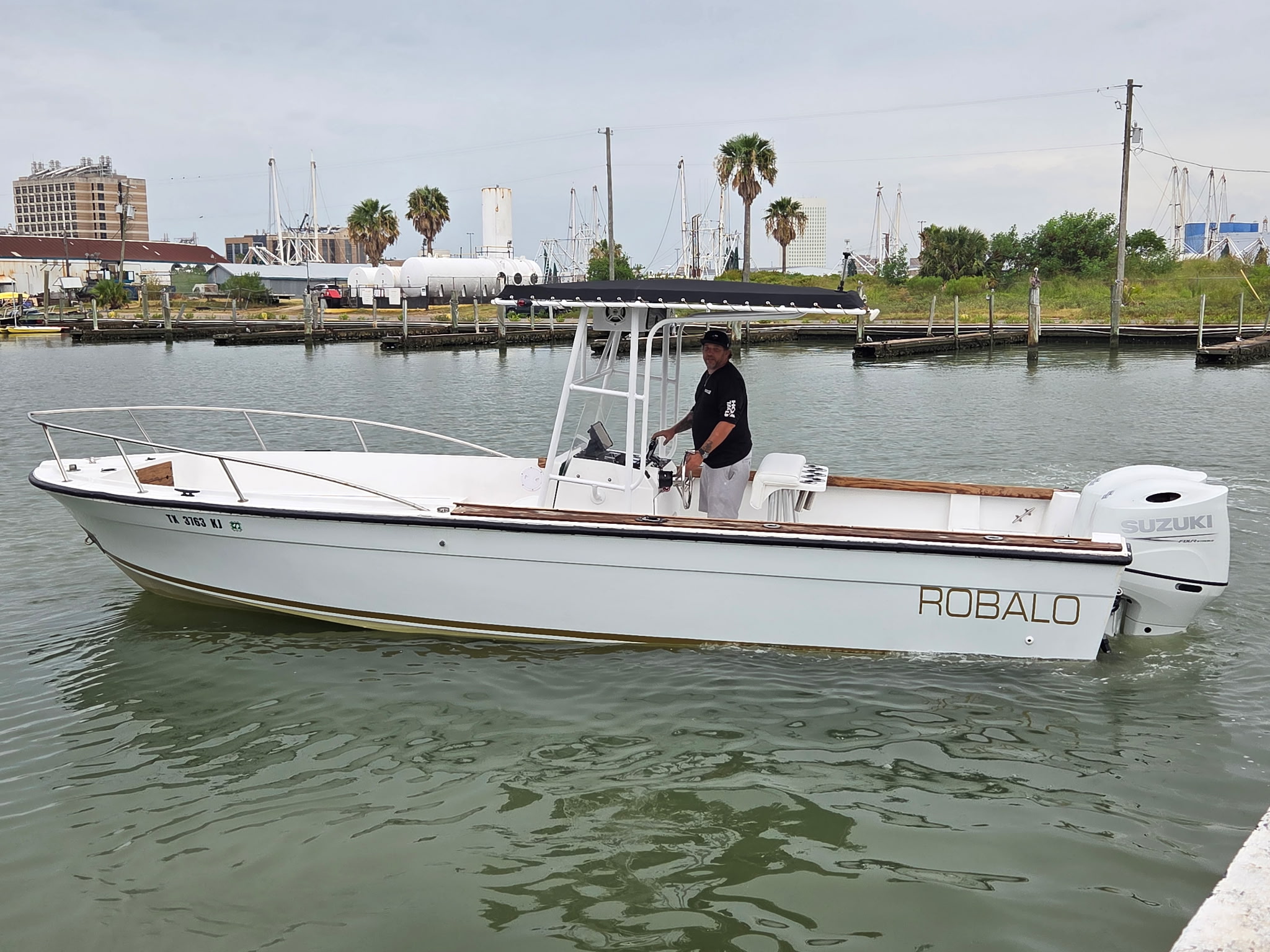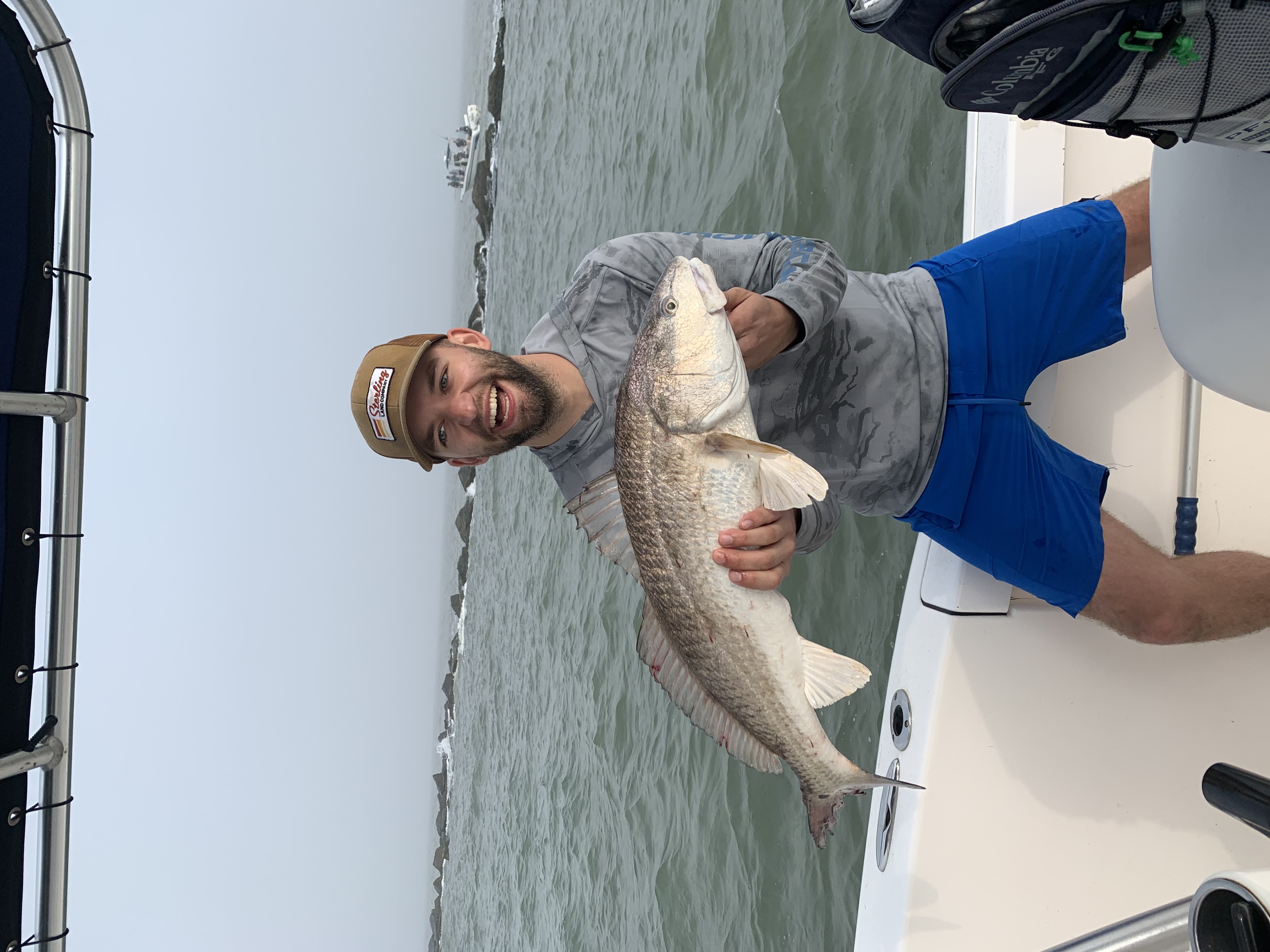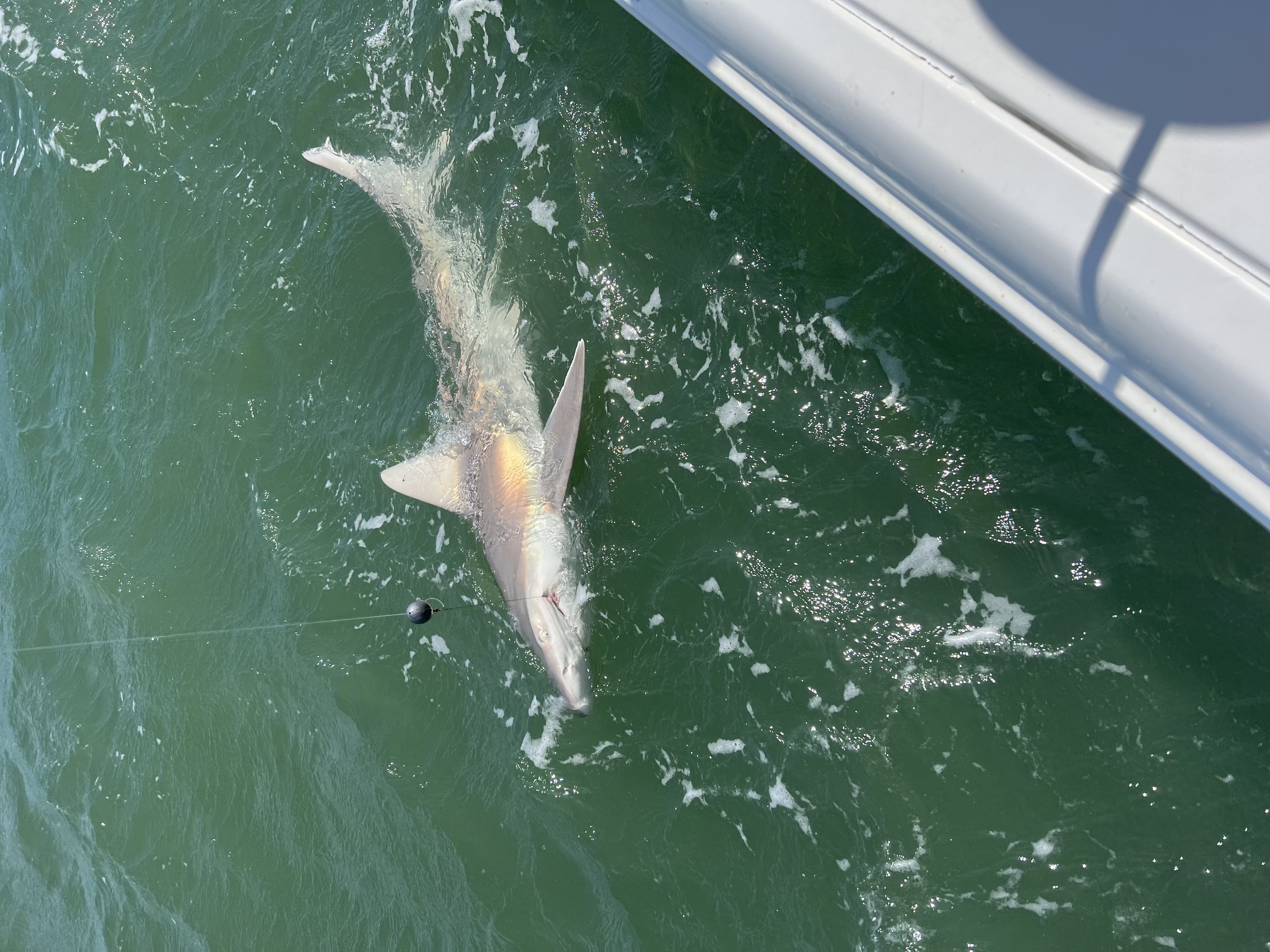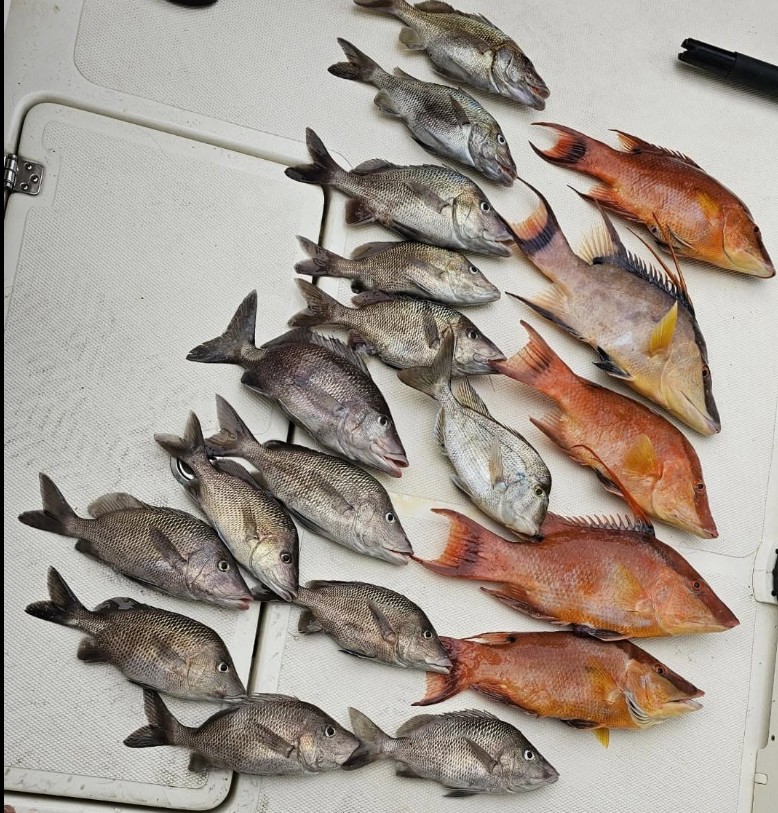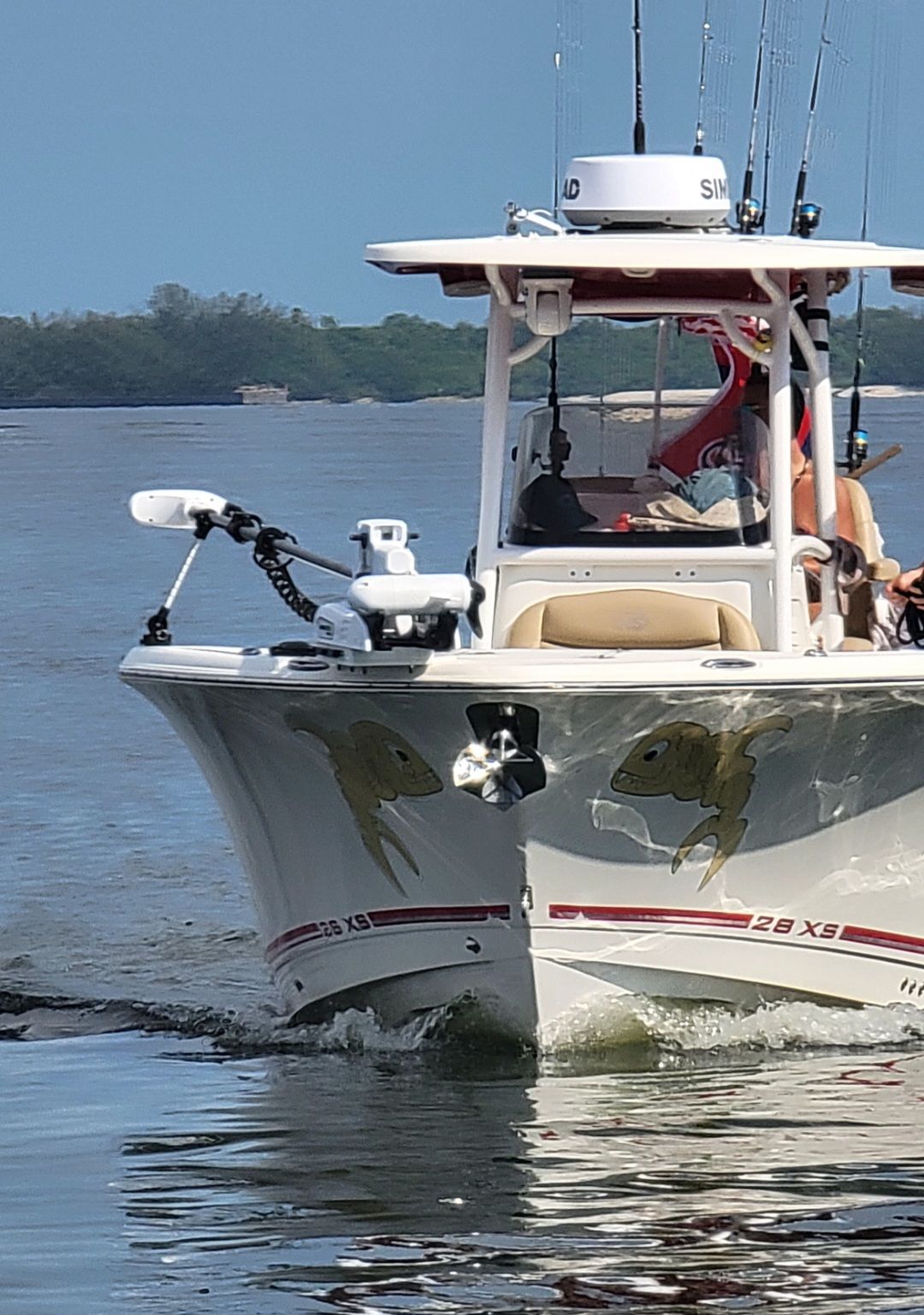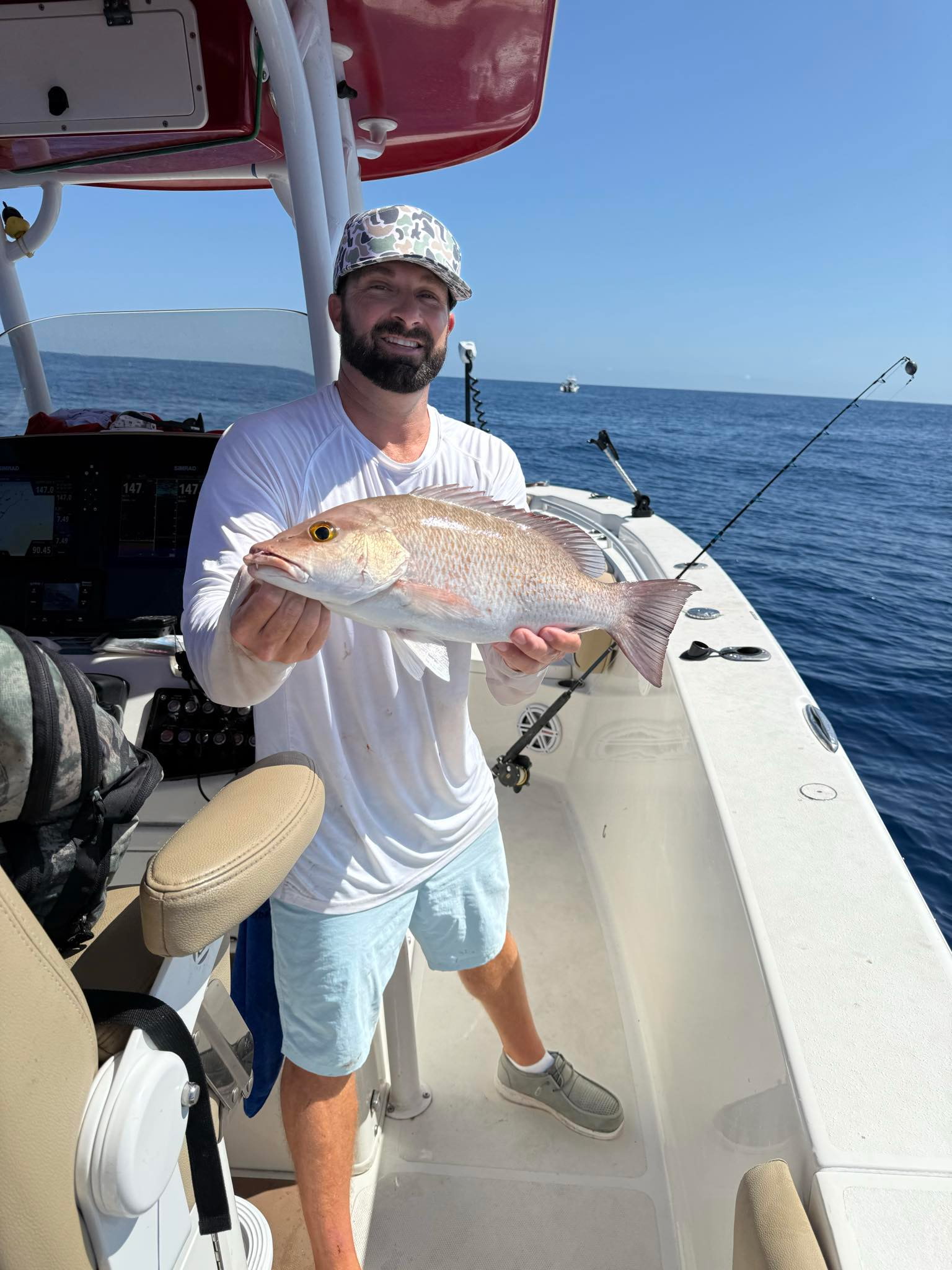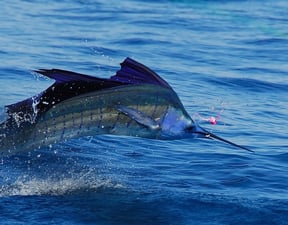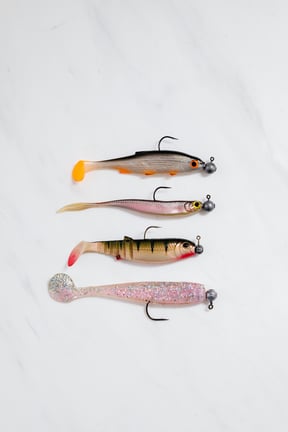Inshore Fishing in Gulf Shores
Inshore Quick Trip
Inshore Fishing in Fort Walton Beach
Night Green Light Inshore
Deep Sea Fishing in Fort Walton Beach
Offshore Mingo
Deep Sea Fishing in Fort Walton Beach
4-10 Hour Trip – Offshore
Inshore, Nearshore, Snorkeling in Fort Walton Beach
4-8 Hour Trip – Fish/Snorkel/Swim
Nearshore, Jetty Fishing in Galveston
Shark Hunt AM
Inshore, Jetty Fishing in Galveston
Half Day Bay/Jetty PM
Inshore, Jetty Fishing in Galveston
Half Day Bay/Jetty PM
Nearshore, Jetty Fishing in Galveston
Shark Hunt PM
Nearshore Fishing in St. Petersburg
Nearshore Fishing ( <30 Miles Out)
We started Captain Experiences to make it easy to book fishing and hunting guides around the world. With over 2,000 Damn Good Guides, our platform makes finding and booking a trip seamless. Head here to check out our trips.
When most people think of fishing, they imagine someone sitting on the bank of a river with a pole in their hand. However, there is more to fishing than that. There are two types of fishing: recreational and commercial. Recreational fishing is done for pleasure, while commercial fishing is done to make a profit. In this blog post, we will discuss the differences between recreational and commercial fishing. We will also look at the legal limits on fish, and how techniques vary between recreational and commercial fishermen.
Recreational Fishing
Recreational fishing is an activity dedicated for enjoyment, and as such, is subject to different laws and regulations than commercial fishing. For example, recreational fishermen are typically only allowed to keep a certain number of fish per day. These regulations are put in place to maintain the delicate balance of our world’s fisheries. Overfishing can lead to terrible devastation in fish populations, which has overarching effects on the ecological balance of the oceans and rivers. While many people think that overfishing is strictly due to large trawlers hauling in boatloads of fish, this is not the case. Recreational fishing also has a severe impact on fish populations, which is why recreational fishermen in many states are required to have a license in order to fish. Licenses are important to ensure anglers know their responsibilities as custodians of the seas and practice proper fishing techniques.
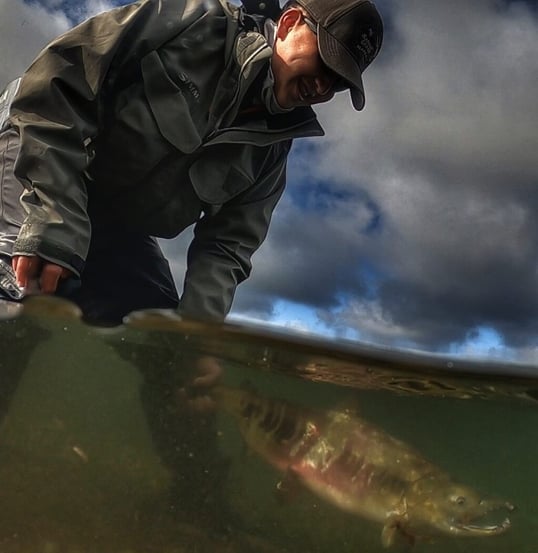
In terms of actually catching fish, recreational fishermen typically use baited hooks and lures. The age old set up of rod, reel, line, and hook are a tried and true method of catching fish. Many techniques have developed over the years, but usually using this equipment. From fly fishing to kite fishing, new technologies have added a spin to the old line and lure, but the practice remains relatively similar.
Commercial Fishing
Commercial fishing is the taking of fish and other seafood to make a monetary profit. In most cases, commercial fishing involves catching fish in large quantities from the wild. It can be done from the shore or from a boat, and almost all the fish are sold to various vendors and markets. Commercial fishing is very important to the global economy and food security. Fish feed millions of people around the world, and commercial fishermen provide that important food source in droves.
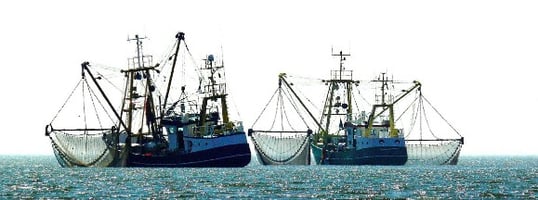
Just like recreation fishing, commercial fishermen must have a commercial fishing license in order to fish in the United States. This license is more difficult to acquire than a recreational fishing license because the ramifications of overfishing are more prevalent when hauling in thousands of fish a day. These licenses are important because commercial fishermen need to understand the power they wield. The regulations on commercial fishing vary depending on the state in which you are fishing as well as the type of fish you are trying to catch. Again, these regulations are in place to keep fish populations sustainable. Hopefully, the oceans provide us with food for many more years to come.
There are many different commercial fishing techniques that fishermen use to catch fish. Some of these techniques include trawling, seining, gillnetting, longlining, and dredging. All these techniques pull up fish in mass quantities, unlike recreational fishing techniques.
Milo Kashey
Updated on August 2, 2023
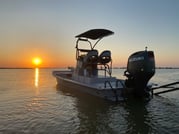
January 7, 2022
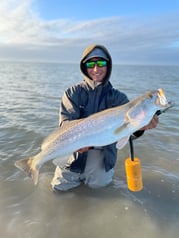
January 19, 2021
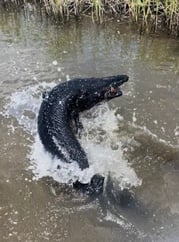
June 22, 2022

April 26, 2022
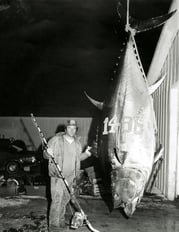
June 3, 2021
Related Articles
November 19, 2021
March 14, 2022
June 19, 2023
Featured Locations
- Fishing Charters Near Me
- Austin Fishing Guides
- Biloxi Fishing Charters
- Bradenton Fishing Charters
- Cabo San Lucas Fishing Charters
- Cancun Fishing Charters
- Cape Coral Fishing Charters
- Charleston Fishing Charters
- Clearwater Fishing Charters
- Corpus Christi Fishing Charters
- Crystal River Fishing Charters
- Dauphin Island Fishing Charters
- Daytona Beach Fishing Charters
- Destin Fishing Charters
- Fort Lauderdale Fishing Charters
- Fort Myers Fishing Charters
- Fort Walton Beach Fishing Charters
- Galveston Fishing Charters
- Gulf Shores Fishing Charters
- Hatteras Fishing Charters
- Hilton Head Fishing Charters
- Islamorada Fishing Charters
- Jacksonville Fishing Charters
- Jupiter Fishing Charters
- Key Largo Fishing Charters
- Key West Fishing Charters
- Kona Fishing Charters
- Lakeside Marblehead Fishing Charters
- Marathon Fishing Charters
- Marco Island Fishing Charters
- Miami Fishing Charters
- Montauk Fishing Charters
- Morehead City Fishing Charters
- Naples Fishing Charters
- New Orleans Fishing Charters
- New Smyrna Beach Fishing Charters
- Ocean City Fishing Charters
- Orange Beach Fishing Charters
- Panama City Beach Fishing Charters
- Pensacola Fishing Charters
- Pompano Beach Fishing Charters
- Port Aransas Fishing Charters
- Port Orange Fishing Charters
- Rockport Fishing Charters
- San Diego Fishing Charters
- San Juan Fishing Charters
- Sarasota Fishing Charters
- South Padre Island Fishing Charters
- St. Augustine Fishing Charters
- St. Petersburg Fishing Charters
- Tampa Fishing Charters
- Tarpon Springs Fishing Charters
- Venice Fishing Charters
- Virginia Beach Fishing Charters
- West Palm Beach Fishing Charters
- Wilmington Fishing Charters
- Wrightsville Beach Fishing Charters
